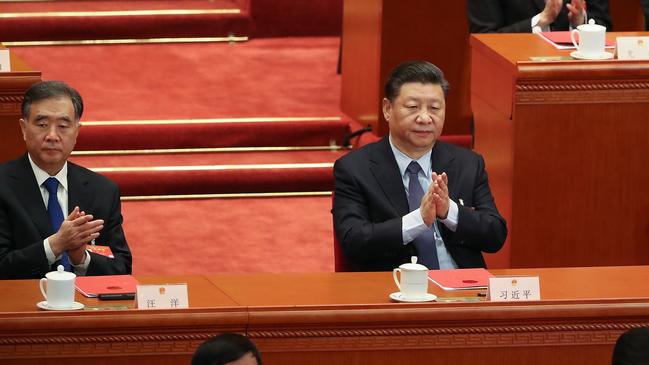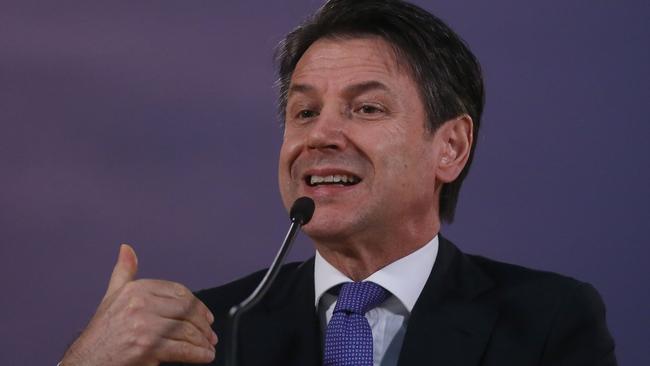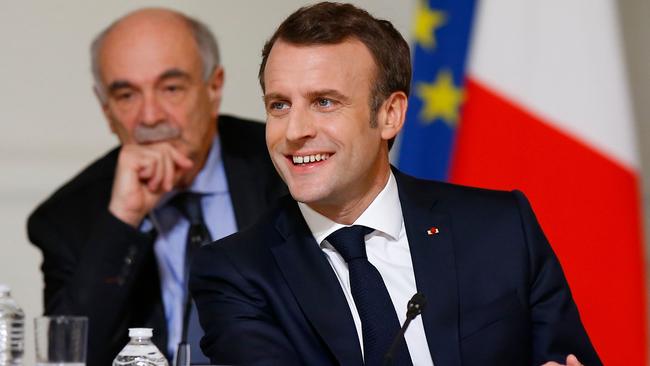Xi Jinping plans to divide and rule the West

President Xi Jinping can expect a hero’s welcome in Rome tomorrow since he ticks all of the populist government’s criteria for a strongman leader. How do we know this? Well, here’s a clue: the Italian president of the European parliament has just been praising the modernising talents of Benito Mussolini. The road-building, the sports stadiums, the architecture, the drained swamps. Now almost 74 years after Il Duce’s ignominious death another champion of modern national socialism is in town, bearing gifts under the guise of China’s Belt and Road initiative, with the intent not of reviving Italy but of splintering Europe.
Let’s hope Xi’s version of the Mussolini dream does not end up with involvement in a world war. China’s global economy may stoke its geopolitical ambitions but, if we’re lucky and shrewd, may also impose constraints on its behaviour. Yet the warnings from the past are clear: Xi has set up detention camps to “re-educate” Uighur Muslims in the Xinjiang region. He calls them boarding schools but inmates report sleep deprivation, beatings and torture. The Chinese leader has presided over the setting up of a surveillance state, pumped cash into an army primed for battle, played fast and loose with international law and allowed the growth of a personality cult. Mussolini pronounced that fascism “should more appropriately be called corporatism because it is a merger of state and corporate power”. Xi thinks in similar categories.
The Italians, then, should curb their enthusiasm. Xi views not just Italy but the whole of southern Europe as the soft underbelly of the West. The Chinese have bought into the Greek port of Piraeus. Portugal has been looped into China’s economic plans with the development of the Atlantic container port of Sines. In Italy, ports like Trieste and Palermo are of interest. A memorandum of understanding sets out plans to build roads, bridges, air hubs and telecoms networks. The Beijing-led Asian Infrastructure Investment Bank would fork out the loans.

The head of the League, Matteo Salvini, the moving force behind the Italian government, may well be thinking: what’s not to like? Cash, jobs, and a snub to Brussels. But the fact is he has been drawn into a giant exercise in manipulation. The combined GDP of the United States and the European Union was about $36 trillion in 2017, almost triple that of China. The GDP of the EU alone comes to $17.3 trillion, still well ahead of China. Crucially though, China has a GDP six times that of Italy.
The Xi strategy is thus in the first place to sow as much division as possible between Washington and the EU, and then play on the dissension within Europe itself. It wins its battles one country at a time, picking off those hungry for bilateral investment. The Belt and Road initiative is not a new version of the Marshall Plan but a device that allows China to peel the onion of the West layer by layer. On Xi’s visit to France later this week, he will present himself as a natural partner of Emmanuel Macron in upholding multilateral diplomacy against the encroachments of the Trump administration. Actually, he wants to neutralise Macron in the internal EU debate about whether China is a systemic rival or a strategic partner.

The European Commission imagines that it can somehow bridge the differences in the EU, perhaps before a European-China summit scheduled next month. Europe, though, is split on issues like the use of Huawei kit in upgrading to 5G. The Trump team warns of the security threat that could be planted by the Chinese as Europe moves towards the next stage of the telecoms revolution but the American line is not holding, not even within traditionally Atlanticist intelligence communities.
Germany, absurdly, says it will seek a no-spying guarantee from China before adopting Chinese equipment. Britain, which has the longest experience in scrutinising Huawei, seems to believe it can “manage” the risk. Chinese whisperers briefing ahead of the Xi visit hint that the US president may settle the trade dispute with Beijing more quickly than expected, and the campaign against Huawei will thus become less charged. The result: EU states who have declared against Huawei could be left dangling in the wind.
So it is that Xi sees opportunities for mischief in the messy disorder of Europe. Every EU member state now has influential pro-Beijing placemen. Every pitstop on Xi’s short trip this week presents a chance to weaken western bonds. He will visit the Vatican for example and hold out the prospect of better conditions for Catholics in China; he will also urge the Vatican to end its diplomatic relations with Taiwan. If the Vatican agreed it would be a big win for Xi. That’s crude transactionalist policy, not the act of a statesman.
Italy and others who are being played in this elaborate game of divide-and-rule need to resist the flattering embrace of the strongman. Xi, like Vladimir Putin, appears strong only as long as he can make the case that the West has grown flaccid, unable to defend its traditional grip on the process of globalisation. The Chinese leader demands from his European admirers a leap of faith: that he can supply an answer to the failings of the liberal order. Despite the undoubted strengths of the Chinese economy, this is largely a sham.
If Xi were really a confident visionary, he wouldn’t be so actively trying to sabotage the West. He would devote his energy to solving China’s huge social problems. As the Italians found out long ago, just making the trains run on time doesn’t equate to good governance.
The Times



To join the conversation, please log in. Don't have an account? Register
Join the conversation, you are commenting as Logout